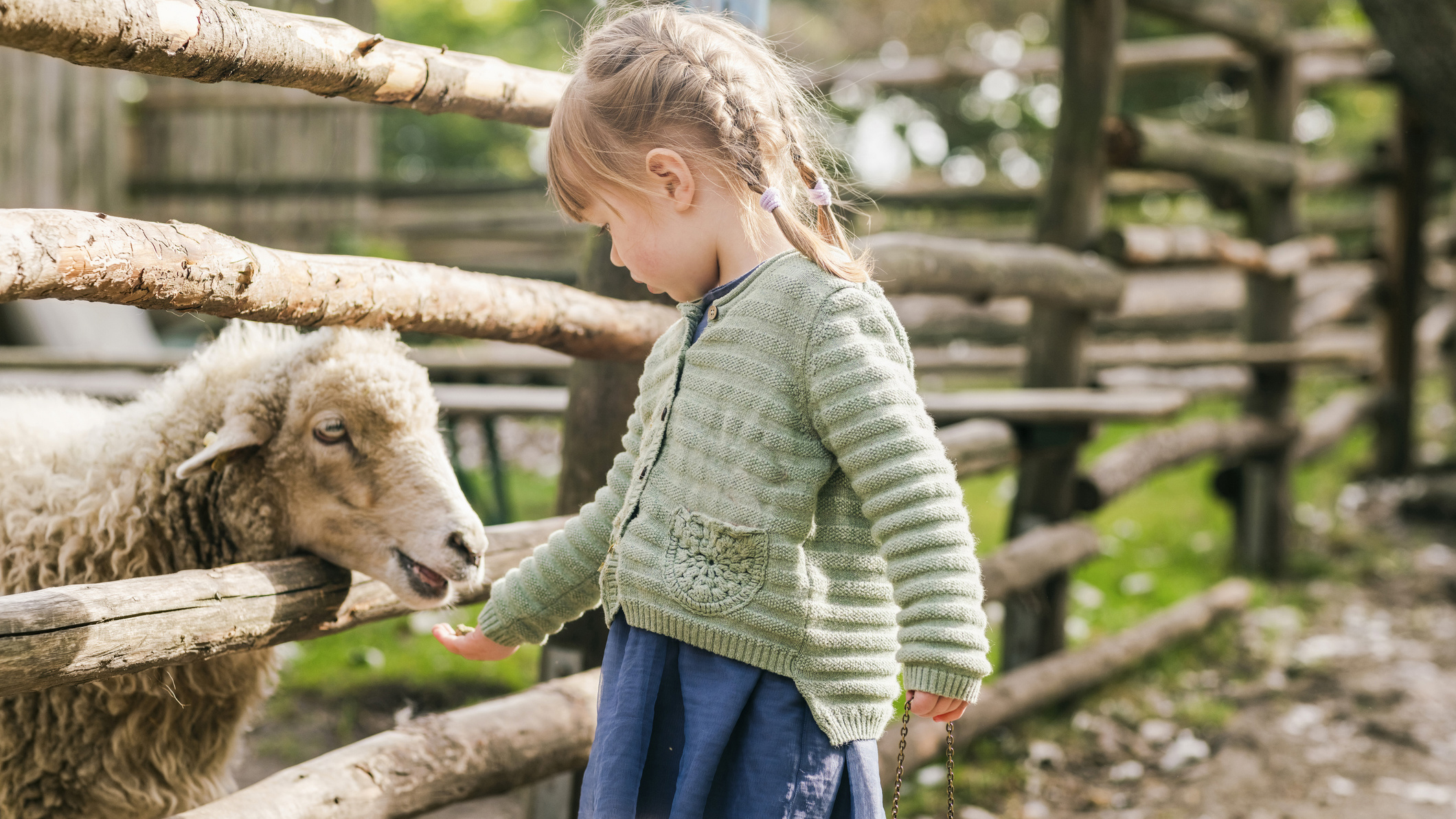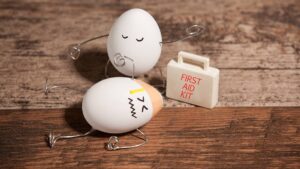Sheep-derived products propel Aroa’s global growth in soft tissue regeneration

Aroa ECM is manufactured from ovine (sheep) forestomach tissue. Pic: Getty Images
- AROA Biosurgery continues to expand its product line in regenerative tissue repair on back of positive clinical results
- Using ovine forestomach matrix, Aroa’s ECM technology offers top-tier regenerative performance at an attractive price point
- With flagship products driving growth, the company continues to innovate and expand into new segments
Founded in 2008 by veterinarian Dr Brian Ward, New Zealand headquartered soft-tissue regeneration company Aroa Biosurgery (ASX:ARX) ) has come a long way with its products used globally in a range of procedures from trauma and hernia surgeries to mastectomies.
With an interest in regenerative medicine, Ward began to research suitable tissue alternatives after observing that New Zealand’s pasture animals were largely free from disease.
ARX’s source material for its growing range of soft tissue repair products is ovine forestomach matrix (sheep rumen) sourced exclusively from New Zealand, which provides a scaffold – or framework – for new tissue to build.
The forestomach matrix is processed and sterilised to remove DNA and cells, leaving the tissue scaffold called the extracellular matrix (ECM) which has a dense network of vascular channels, a similar structure to human skin and contains more 150 proteins known to be important in the healing process.
Leading performance, better health economics
Listed on the ASX since 2020, ARX has regulatory approval in more than 50 countries with Ward at the helm as CEO and managing director.
Ward told Stockhead due to their high price, biologic products have traditionally been rationed for use only in complex procedures.
“We’ve been able to identify ways to improve the manufacturing process, lowering the cost of producing these types of products, enabling more patients to access the benefits of regenerative healing,” he says.
While ARX’s products are being used globally, it is focused on the US with distribution into the world’s biggest healthcare market via their direct sales force and partner Nasdaq-listed TELA Bio.
ARX recently reported its full year FY24 results with product revenue of NZ$68m, reflecting a 12% increase on FY23, 10% on a constant currency (cc) basis.
The company is working towards breakeven in FY25 and forecasts FY25 total revenue of NZ$80-87m, reflecting 21-32% cc growth on FY24.
So just what are ARX’s main products and focus areas?
Endoform
ARX’s first iteration of AROA ECM was in its simplest sheet-form, Endoform, for use in chronic and acute wounds.
Ward says the approach was identified as the most expedient route to both commercialisation and establishing a compelling clinical dataset to validate efficacy.
“Once initial commercialisation and clinical evidence goals were achieved, this allowed the focus to shift to developing more complex devices using AROA ECM technology,” he says.
Myriad portfolio
ARX’s Myriad family of products are a key focus and strong performer for ARX, with a 73% increase (70% on cc basis) in full-year FY24 Myriad product revenue to NZ$23.3m with active accounts growing by 31% to 218.
Myriad Matrix is an extracellular matrix graft, indicated for use in soft tissue reconstruction and complex wounds.
Myriad Morcells is a morcellised version of Myriad Matrix that conforms to optimise contact with irregular wound beds.
Myriad Morcells Fine is a morcellised conformable ECM graft that can be used either by itself or synergistically with Myriad Matrix
ARX expects its Myriad portfolio to continue driving strong growth in the soft tissue reconstruction market following its robust FY24 performance.
“Myriad products have been commonly used in limb salvage but will also be increasingly used in the trauma segment, which has become a key focus,” Ward says.
He says the trauma segment typically includes emergency procedures such as motor vehicle accidents, gunshot wounds and crush injuries.
There is a growing body of clinical evidence supporting Myriad in complex trauma procedures, including in combination with negative pressure wound therapy (NPWT).
ARX expects Myriad to provide a range of benefits in trauma procedures, including in the quality and rate of healing, as well as from a health economics perspective, and is focusing its clinical development accordingly.
“The feedback from clinicians has been very positive and they like that they can immediately use Myriad in surgery and see rapid tissue formation,” Ward says.
The company has a Myriad registry running in the US with 300 patients enrolled.
“We expect the registry to continue to generate evidence to support the use of Myriad in trauma and in combination with negative pressure wound therapy over the next 12 months,” Ward says.
“Our goal is to demonstrate that Myriad can improve healing times and reduce the costs of treating patients for hospitals.”
OviTex product range
OviTex and OviTex PRS are reinforced bioscaffolds manufactured by ARX based on its ECM technology and co-developed with its US partner TELA Bio.
The products are sold by TELA Bio in the US and Europe. The company is licensed to sell OviTex for abdominal wall reconstruction and hernia repair and more recently OviTex PRS for breast reconstruction.
Since the first hernia product was launched in 2016, the portfolio has expanded to include hernia products for minimally invasive robotic surgery.
OviTex IHR was launched earlier this year specifically designed for use in laparoscopic and robotic-assisted inguinal hernia repair.
Ward says additional lines of its products for hernia repair and breast reconstruction will be released for TELA Bio over the next 12 months.
Sales continue to be strong for OviTex products, with TELA Bio upgrading its initial CY24 guidance to US$74.5-76.5m, reflecting 27-31% yoy growth.
Furthermore, inventory management improvements introduced by Tela Bio which lead to a drop in sales orders in 2023 are now implemented.
“We would anticipate as we move forward that our Ovitex sales will be growing at a similar rate to TELA Bio which will have a big impact on our business and is a positive as we look forward to FY25,” Ward says.
Symphony
ARX says Symphony is a graft for complex non-healing diabetic and venous ulcers. It is designed to support healing during the proliferative phase, where cells are multiplying or increasing in numbers, to reduce time to wound closure.
“Symphony is particularly aimed at patients whose healing is severely impaired or compromised due to disease,” Ward says.
ARX is currently undertaking an 18-month random controlled trial of Symphony with ~120 patients assessing the product’s efficacy in treating diabetic foot ulcers.
Ward says data from the multi-centre study, which is expected to be published in FY25, will be an important catalyst in driving Symphony sales.
Enivo
ARX is developing the Enivo platform, a new class of product, for managing tissue cavities (or dead space) created by surgical dissection or tissue removal at a surgical site.
Enivo consists of a specially designed AROA ECM implant that is coupled to an external single-use negative pressure pump.
When deployed, the tissue surfaces are drawn together, held in place and tissue fluids are carried by the vacuum to an external fluid collection bag.
“Early indications are that Enivo is showing promise in reducing seromas in mastectomies, a common complication that delays healing, ” Ward says.
ARX has received US FDA clearance for two of three components of the Enivo system. The company is engaging with the FDA to confirm design of clinical and pre-clinical studies to support further clearance to commercialise Enivo.
At Stockhead, we tell it like it is. While Aroa Biosurgery is a Stockhead advertiser, the company did not sponsor this article.
Related Topics

UNLOCK INSIGHTS
Discover the untold stories of emerging ASX stocks.
Daily news and expert analysis, it's free to subscribe.
By proceeding, you confirm you understand that we handle personal information in accordance with our Privacy Policy.








